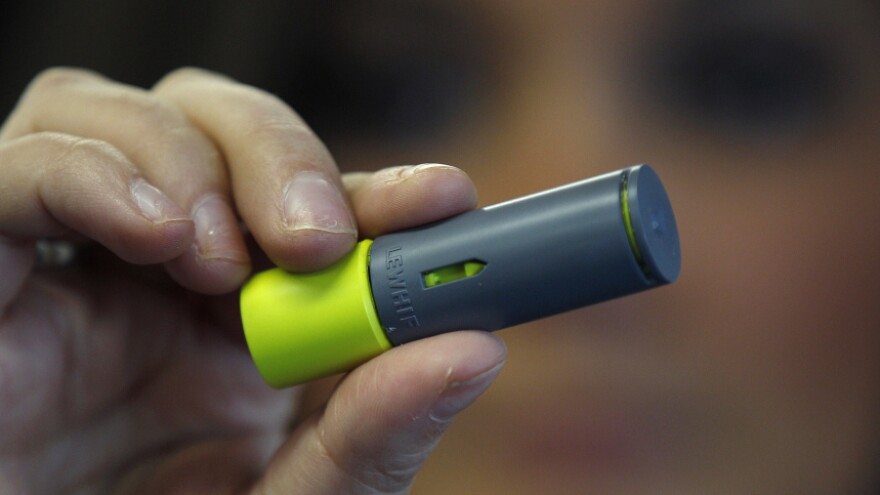Since we introduced you to AeroShot, a product that delivers a blast of caffeine through an inhaler, a few months back, it seems a lot of folks — mostly around college campuses in New York and Boston — have tried the quick pick-me-up.
But now the U.S. Food and Drug Administration has questions. And so does the American Academy of Pediatrics. Lots of them. The FDA says it will review the safety and legality of AeroShot.
Controversy can sometimes be good for sales. A spokesperson for the company says demand has shot up and the product is currently sold out — at least online.
AeroShot is the brainchild of Harvard professor David Edwards, and the company, called Breathable Foods, is led by Harvard College graduate Tom Hadfield. In a statement, Hadfield says he's confident that the FDA review "will conclude that AeroShot is a safe, effective product that complies with FDA regulations."
The FDA review comes after Sen. Charles Schumer, D-N.Y., raised concerns over AeroShot's potential use as a "party enhancer." "We need to make sure that AeroShot does not become the next Four Loko by facilitating dangerous levels of drinking among teenagers and college students," Schumer wrote in a statement.
Another safety concern is whether the AeroShot particles could enter the lungs. According to the product's website, the powder reaches the mouth where it is swallowed and ingested. But the American Academy of Pediatrics has questioned this claim.
"While your website claims that AeroShot absolutely does not enter the lungs, it is unlikely that none of the powder can enter the trachea and the large bronchi," writes AAP President Robert Block, in a letter to Hadfield. "If some product does enter the lungs, the fast absorption of caffeine into the body could have serious potential health effects."
The AAP also has concerns about the effect of the product on asthma. Block also questions what data Hadfield has to support the claim that AeroShot is safe for children ages 12 and above. (The AAP discourages the nonmedical use of caffeine by all adolescents and young adults.)
FDA spokesperson Tamara Ward tells The Salt that the review will determine whether a violation of the Federal Food, Drug, and Cosmetic Act has occurred, and whether regulatory action is warranted.
Copyright 2021 NPR. To see more, visit https://www.npr.org.


